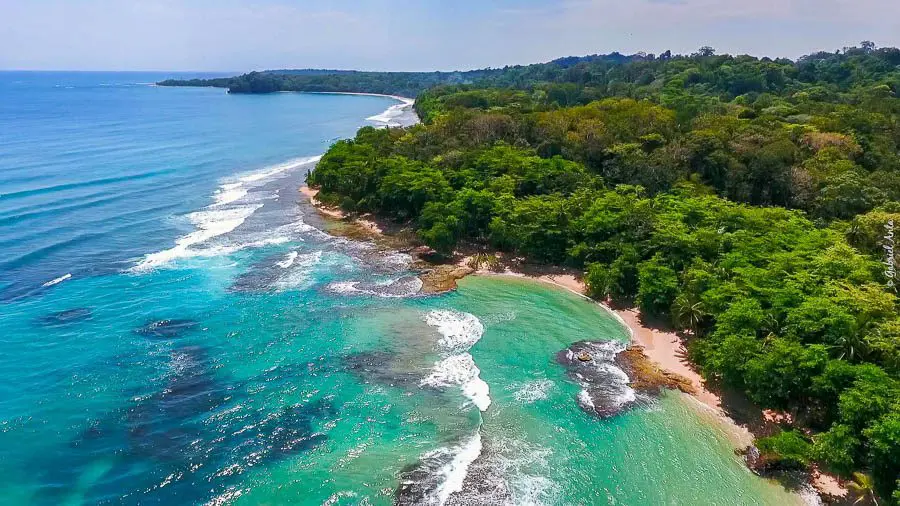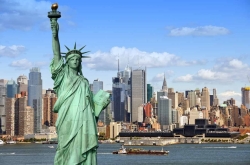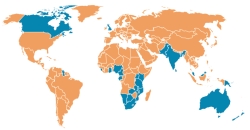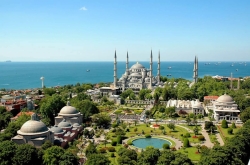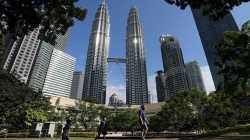Home / Blog / Travel & Geography
List of United Nations Specialized Agencies: Functions & Headquarters
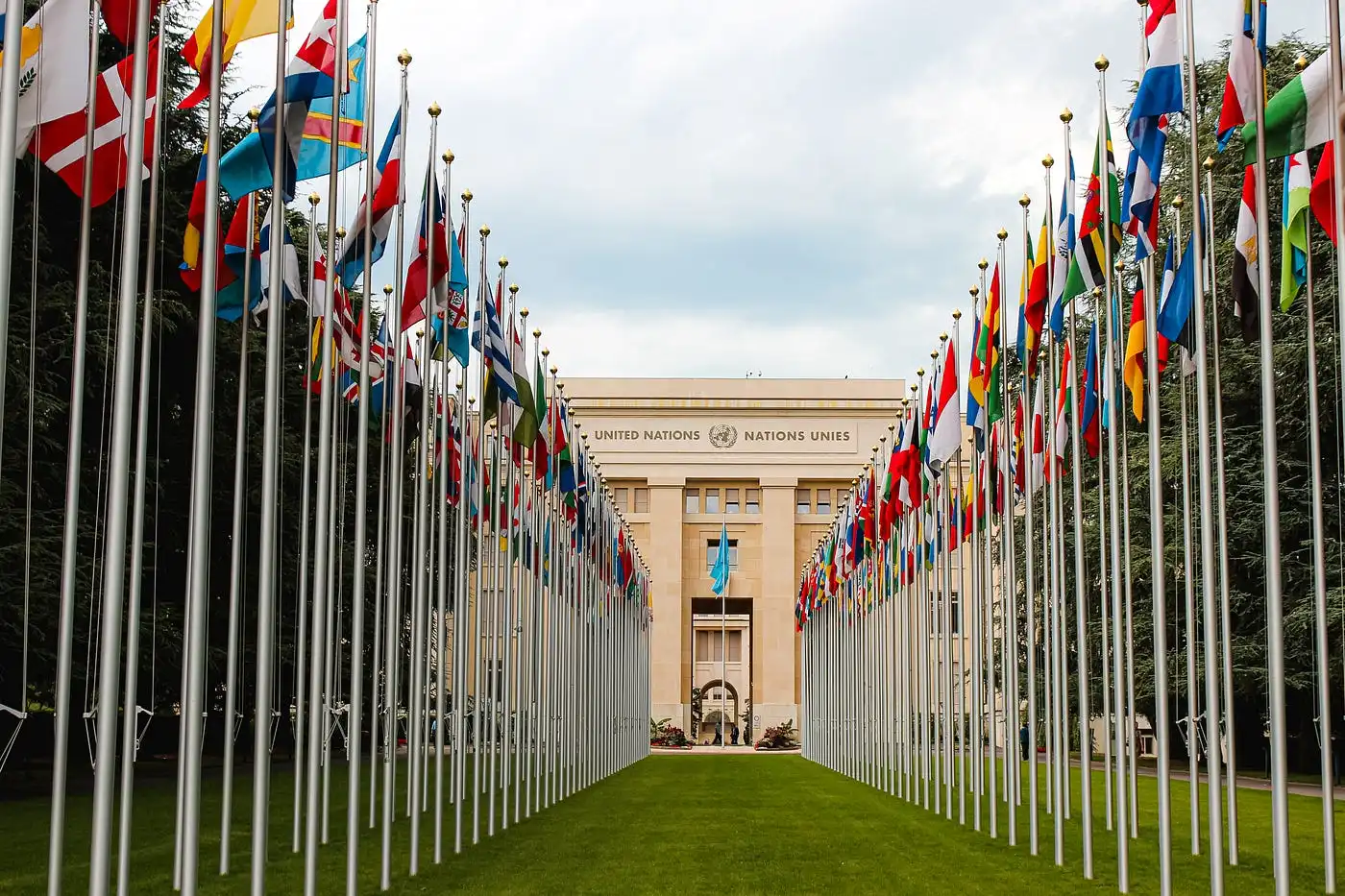
The United Nations (UN) is the most prominent and comprehensive international organization in existence today. Founded on October 24, 1945, in the aftermath of the devastation caused by World War II, its primary mission was — and remains — to promote peace, prevent conflict, and foster international cooperation. The UN emerged as the successor to the League of Nations, which failed to prevent the outbreak of global war in the 1930s. Its formation was a bold and visionary step toward building a more stable and unified world order.
Headquartered in New York City, USA, the United Nations now comprises 193 member states, representing nearly every sovereign country on Earth. It provides a unique platform where countries, regardless of size or power, come together to discuss and solve common problems. The UN serves as a forum for diplomacy, a mechanism for peacekeeping, and a vehicle for development and humanitarian assistance.
The UN is guided by the principles and purposes outlined in its Charter, which include:
- Maintaining international peace and security
- Promoting respect for human rights and fundamental freedoms
- Encouraging economic and social progress
- Upholding international law and justice
- Fostering international cooperation in solving global issues
Over the decades, the UN has evolved to meet new challenges, including climate change, terrorism, global pandemics, cybersecurity, and migration crises. It operates through a network of main organs, committees, programs, and specialized agencies to implement its broad and complex mandate.
In addition to responding to emergencies like wars or natural disasters, the UN works tirelessly behind the scenes to support education, health, development, and justice in some of the world’s most vulnerable regions. It facilitates international treaties, monitors elections, and deploys peacekeeping missions in conflict zones.
Yet, given the sheer variety and technical complexity of global issues — from maritime shipping regulations to pandemic response and intellectual property — the UN needed specialized bodies with the technical expertise and focused mandates to tackle these sectors effectively. This led to the creation of a system of Specialized Agencies, each dedicated to specific aspects of international cooperation, development, and governance.
These agencies are essential to the operational strength of the UN system, helping it transform its ideals into measurable, real-world outcomes. In the sections below, we will explore these agencies, what they do, and where they are located. First, let's take a look at the 6 organs of the United Nations.
Key Organs of the United Nations
To perform its broad mandate, the UN is structured into six main organs:
-
The General Assembly – A deliberative body where all 193 member states are represented equally. It discusses and makes recommendations on global issues.
-
The Security Council – Responsible for maintaining international peace and security. It has 15 members, 5 of whom are permanent with veto power.
-
The Economic and Social Council (ECOSOC) – Coordinates economic, social, and environmental work and oversees specialized agencies.
-
The International Court of Justice (ICJ) – Settles legal disputes between states and gives advisory opinions.
-
The Secretariat – Led by the UN Secretary-General, it carries out the day-to-day work of the organization.
-
The Trusteeship Council – Currently inactive, it was established to supervise trust territories towards independence.
Why Specialized Agencies Are Needed
Given the vast scope of issues the UN deals with—ranging from health and education to aviation and intellectual property—it became necessary to create Specialized Agencies.
These are autonomous organizations linked to the UN through agreements with ECOSOC. Each agency has its own governance structure, membership, budget, and specific area of expertise, allowing for targeted global cooperation and technical support.
List of United Nations Specialized Agencies: Functions & Headquarters
Here are the 17 UN Specialized Agencies, each with its primary function and headquarters:
1. Food and Agriculture Organization (FAO)
- Function: Works to defeat hunger, improve nutrition, and promote sustainable agriculture and rural development.
- Headquarters: Rome, Italy
2. International Civil Aviation Organization (ICAO)
- Function: Regulates international air navigation and sets standards for aviation safety and efficiency.
- Headquarters: Montreal, Canada
3. International Fund for Agricultural Development (IFAD)
- Function: Provides financial support to poor rural farmers and agricultural projects in developing countries.
- Headquarters: Rome, Italy
4. International Labour Organization (ILO)
- Function: Promotes decent work conditions, labor rights, and fair employment standards.
- Headquarters: Geneva, Switzerland
5. International Maritime Organization (IMO)
- Function: Develops global standards for the safety, security, and environmental performance of international shipping.
- Headquarters: London, United Kingdom
6. International Monetary Fund (IMF)
- Function: Ensures global financial stability by offering monetary cooperation, policy advice, and financial assistance.
- Headquarters: Washington, D.C., USA
7. International Telecommunication Union (ITU)
- Function: Coordinates the global use of the radio-frequency spectrum, satellite orbits, and telecommunication development.
- Headquarters: Geneva, Switzerland
8. United Nations Educational, Scientific and Cultural Organization (UNESCO)
- Function: Promotes global education, science, cultural heritage, and freedom of expression.
- Headquarters: Paris, France
9. United Nations Industrial Development Organization (UNIDO)
- Function: Supports industrial growth in developing countries for inclusive and sustainable development.
- Headquarters: Vienna, Austria
10. Universal Postal Union (UPU)
- Function: Coordinates international postal services and sets global postal regulations.
- Headquarters: Bern, Switzerland
11. World Bank Group (WBG)
- Function: Provides financial and technical support for projects aimed at reducing poverty and promoting development.
- Headquarters: Washington, D.C., USA
12. World Health Organization (WHO)
- Function: Leads global efforts to combat diseases, promote health systems, and respond to health emergencies.
- Headquarters: Geneva, Switzerland
13. World Intellectual Property Organization (WIPO)
- Function: Promotes the protection of intellectual property (IP) across the globe.
- Headquarters: Geneva, Switzerland
14. World Meteorological Organization (WMO)
- Function: Coordinates international cooperation on weather, climate, water, and atmospheric sciences.
- Headquarters: Geneva, Switzerland
15. World Tourism Organization (UNWTO)
- Function: Promotes responsible, sustainable, and universally accessible tourism.
- Headquarters: Madrid, Spain
16. International Atomic Energy Agency (IAEA) (Though not technically a UN specialized agency, it works closely with the UN)
- Function: Promotes the peaceful use of nuclear energy and prevents its misuse for military purposes.
- Headquarters: Vienna, Austria
17. World Trade Organization (WTO) (Not formally a UN agency but cooperates closely with the UN system)
- Function: Regulates international trade and settles trade disputes between nations.
- Headquarters: Geneva, Switzerland
FAQs about UN Specialized Agencies
Q1: How are specialized agencies funded?
They are independently funded through assessed and voluntary contributions by member states, donor countries, and development partners.
Q2: Are all member states of the UN automatically members of these agencies?
No. Membership is voluntary, although most UN member states choose to join the majority of specialized agencies.
Q3: What is the difference between a UN program and a specialized agency?
Programs like UNDP, UNICEF, and UNHCR are part of the UN proper and directly under its control, while specialized agencies like WHO and ILO are autonomous but linked to the UN through agreements.
Q4: Can specialized agencies enforce international law?
Not directly. They work through consensus, technical guidance, and cooperation. However, some of their conventions and standards become binding once ratified by states.
The United Nations, through its specialized agencies, forms a global network of expertise and cooperation that addresses the world’s most pressing challenges—from health crises and education gaps to trade imbalances and climate change. Each agency plays a crucial role in advancing the UN’s overarching goals of peace, development, and human dignity. As the world becomes increasingly interconnected, the role of these specialized agencies becomes even more vital in ensuring that no country or individual is left behind.
